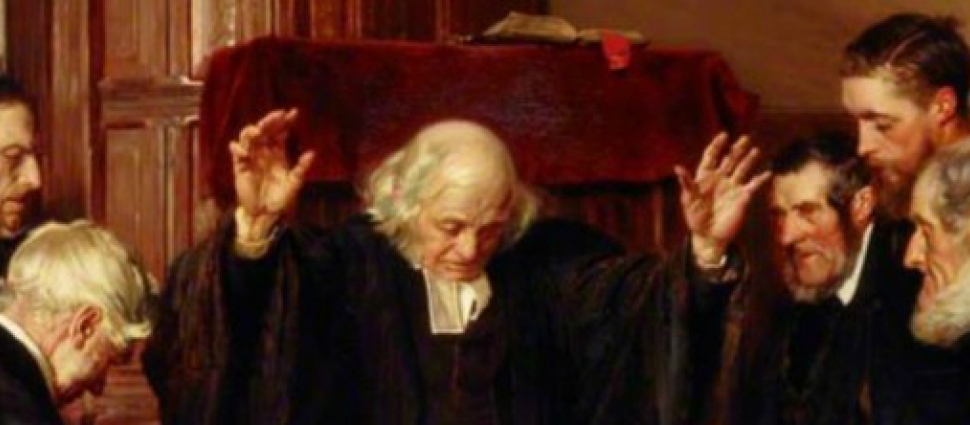James Durham on Ministerial Qualifications (1)

Feb 25, 2016
 The great Scottish theologian and preacher James Durham (1622-1658) published a monumental Commentarie Upon the Book of Revelation in 1658 extending over 1000 pages. John MacLeod stated that Durham’s work “gives what, in past days, was the accepted Protestant view of that book.” (MacLeod, Some Favourite Books, Banner of Truth, 1998; pp. 29-30) Whilst Durham’s understanding of Revelation might not find many followers today, interspersed in the commentary are various theological essays (25 in all) which are of inestimable value.
The great Scottish theologian and preacher James Durham (1622-1658) published a monumental Commentarie Upon the Book of Revelation in 1658 extending over 1000 pages. John MacLeod stated that Durham’s work “gives what, in past days, was the accepted Protestant view of that book.” (MacLeod, Some Favourite Books, Banner of Truth, 1998; pp. 29-30) Whilst Durham’s understanding of Revelation might not find many followers today, interspersed in the commentary are various theological essays (25 in all) which are of inestimable value. I'd like to examine Durham’s essay entitled, "Concerning Ministerial Qualifications" (pp. 170-180), in two posts: first, with this introductory post and second, outlining Durham’s understanding of three key qualifications for the ministry: gifts, learning, and grace.
Of Angels and Men
Durham’s launching point for his consideration of ministerial qualifications are the letters to the seven churches in Revelation 2-3. In particular he takes his cue from the “angels” the letters are addressed to. But who or what are these angels? Well, for Durham they are gospel ministers. Turning to Malachi 2:7 he points out that priests were called “the messenger of the Lord of Hosts” and that “the original” could also be translated “the angel of the Lord of Hosts.” And so, just as priests were once called angels, now ministers, the “messengers” of the risen Christ are appropriately called angels. (pp. 42-43) (For those more controversially minded Durham also discusses why the designation of “the angel” of a particular church does not lead to a church structure with a Lord Bishop!)
Diversities of Gifts
With the angels identified as ministers Durham proceeds to note that in comparing the “angels” of the churches considered in Rev. 3 “we will find great difference.” The angel of the church in Sardis had gifts such that he “had a name that he was alive” (Rev. 3:1). This minister was obviously outwardly gifted. By way of contrast the “angel” of the church in Philadelphia had but “little strength” (Rev. 3:8). This minister had few of the natural gifts that would have marked out the minister of Sardis. Thus Durham notes that “there are different measures of gifts among ministers.” (p. 170) Yet, while there is a base line of “giftedness” none of the “angels” are in Revelation 2-3 are any the less ministers, because their gifts are less. Indeed it can be the very reverse.
The Least and the Greatest
Indeed, Durham goes on to note that for all his giftedness the minister of Sardis “is dead” (Rev. 3:1) and that the fruit of the ministry is only a “few names” (Rev. 3:4). By contrast for all his “little strength” the minister of Philadelphia “hath a good testimony of honesty and success.” (p. 170)
This leads to Durham to draw out a sobering point, and one that speaks clearly to our age which, if anything, makes an idol of “giftedness.” He states: “a sincere honest minster may have very mean gifts, either considered in themselves, or as being compared with others; and yet may be more faithful in improving of them, be more accepted of Jesus Christ with his small measure, and have more fruits and greater success, that others of more shining gifts without tenderness in their walk.” (p. 170) The least in giftedness may indeed be the greatest in usefulness (2 Cor. 4:7)
As we consider Durham’s classic statement of the “Puritan” view of ministerial qualifications, it is important to bear in mind that “it is not great talents God blesses so much as great likeness to Jesus.” (Andrew A. Bonar, ed., Memoir and Remains of Robert Murray M’Cheyne [1892; repr., Edinburgh: Banner of Truth, 1966], 282)





